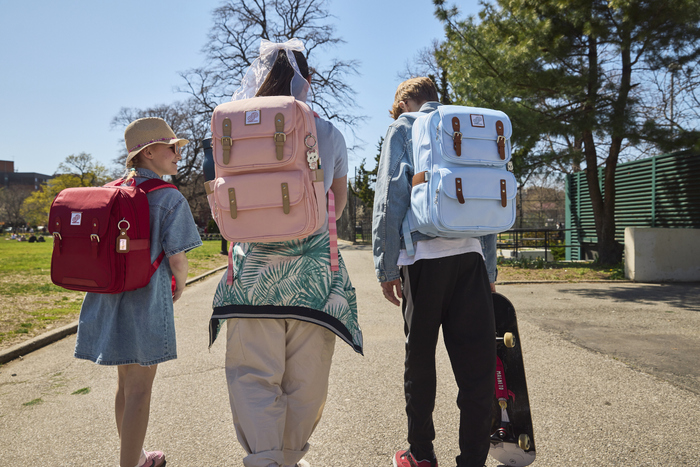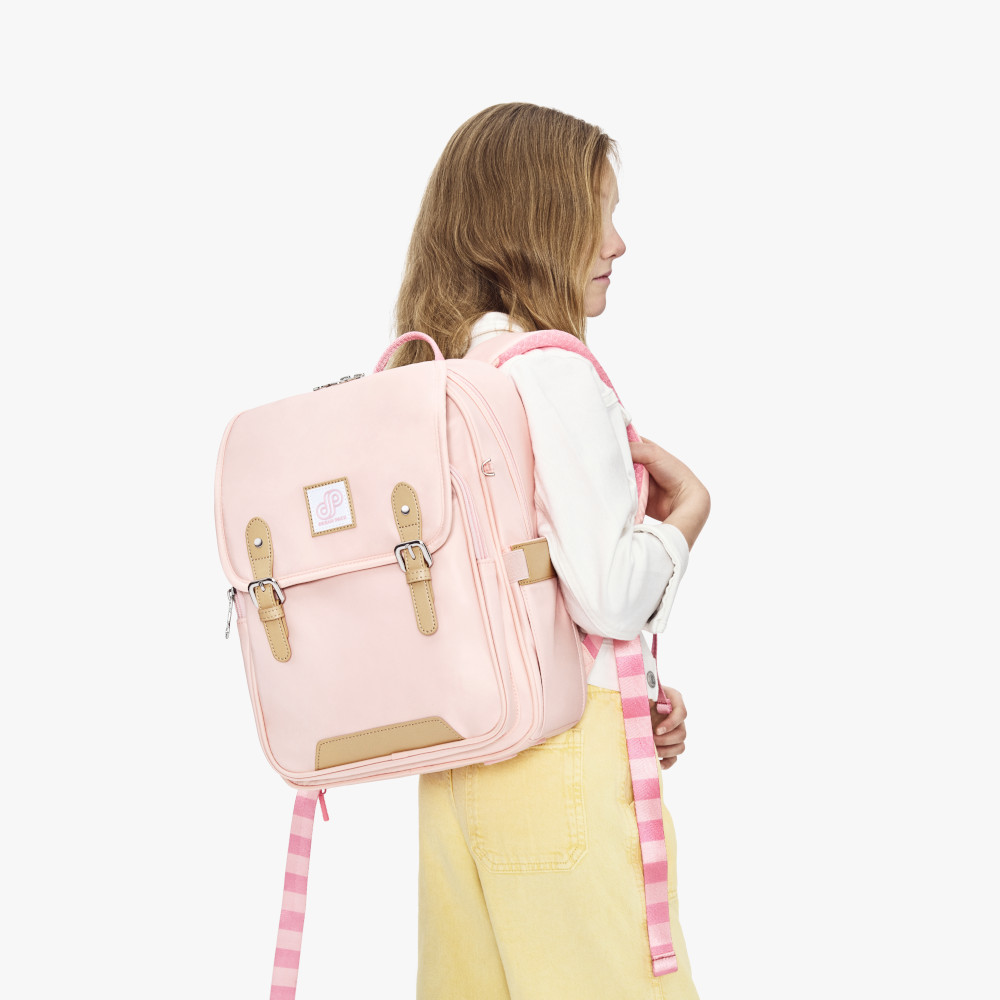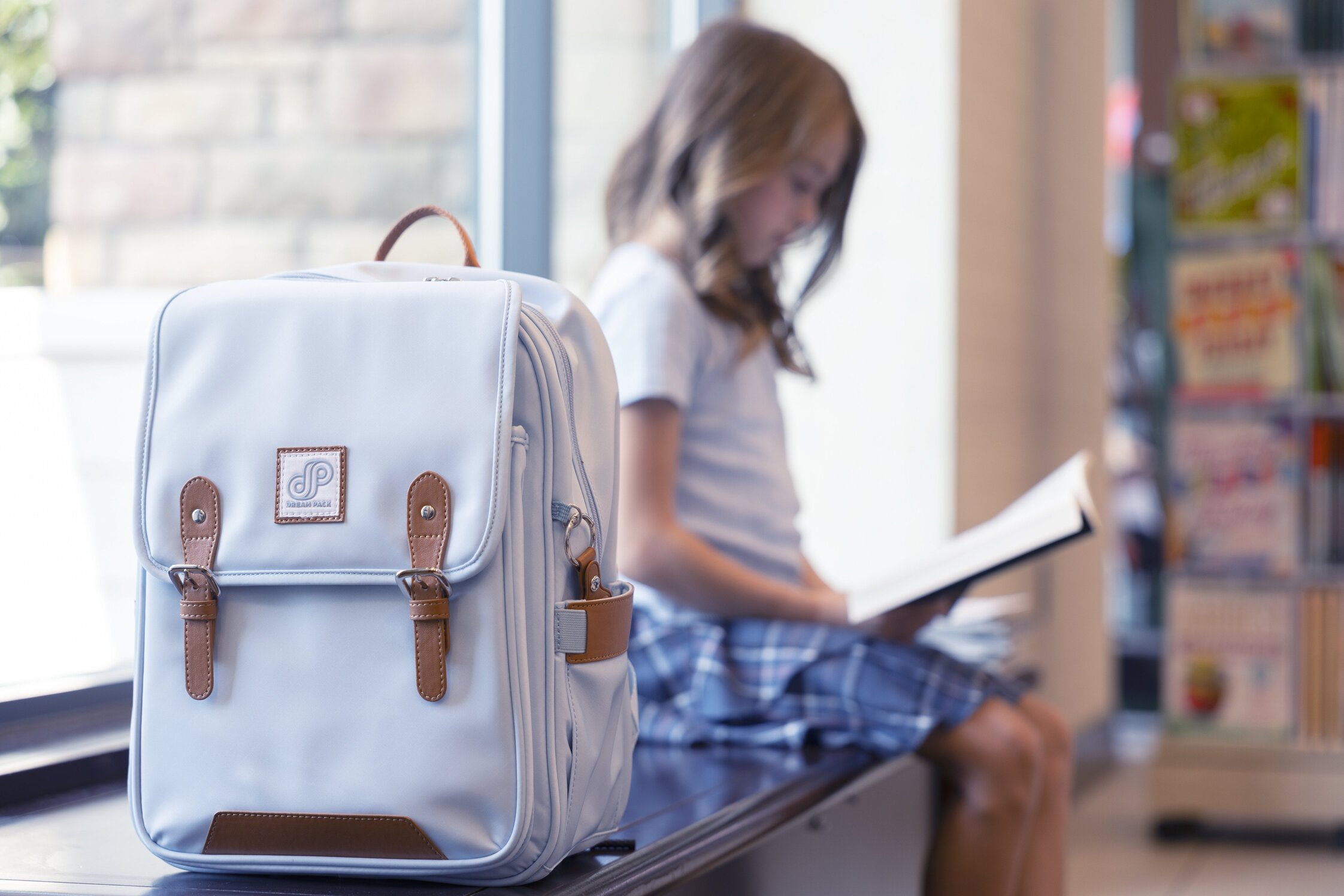The Importance of Ergonomic Design in a Kid Backpack
As parents, we face many decisions to keep our kids safe and happy. Choosing the right kid backpack for school is one of them. Seeing my child struggle with a heavy, wrong-sized backpack made me understand how important it is.
Using ergonomic design in a kid backpack can greatly improve your child's health and daily life. A well-made backpack doesn't just make carrying easier. It also helps their growing body. Brands like DreamPack now offer strong, kid-friendly backpacks that meet these needs.

Key Takeaways
• Ergonomic designs help prevent back pain and posture issues in children.
• Choosing a well-designed backpack is essential for a child's overall development.
• Brands like DreamPack provide durable, ergonomic backpacks for kids.
• A proper backpack ensures health, comfort, and daily convenience.
• Consider ergonomic design features to find the best kid backpack for school needs.
Introduction to Ergonomic Design in Kid Backpacks
As kids' schoolwork and activities grow, so does the need for ergonomic backpacks. These backpacks aim to spread weight evenly, ease shoulder and spine strain, and boost comfort. From simple satchels to today's advanced designs, the evolution shows a focus on ergonomic needs.
DreamPack is a great example of this progress. They use padded straps, breathable backs, and adjustable straps. These features make sure the backpacks are comfy and help kids maintain good posture. DreamPack's dedication to ergonomic design shows how important it is for kids' health.
The creation of ergonomic backpacks shows we understand the physical challenges kids face. As designs get better, parents and teachers can be sure backpacks support daily needs and long-term health. Let's explore the key features and benefits of ergonomic backpacks for kids.
Impact on Posture and Spinal Development
Children's bodies are growing, making them more vulnerable to backpack issues. Carrying a heavy or oversized backpack can make them lean forward. This can lead to serious posture problems over time.
Studies show oversized childs back packs can cause spinal curvature during growth. The American Academy of Pediatrics warns this can stress the spine. It may lead to kyphosis, a rounded upper back. Carrying heavy or ill-fitting backpacks can also lead to poor posture habits. These habits are hard to change later and may cause back pain.
What Makes a Backpack Ergonomic?
An ergonomic backpack is made for comfort and less strain, key for kids carrying school stuff every day. Knowing about ergonomic features and their science helps a lot. It changes how kids feel during their daily activities.
Key Features to Look For
When choosing an ergonomic backpack for your child, focus on key features like adjustable straps for a snug fit, padded back support for comfort and proper alignment, and a design that promotes even weight distribution to prevent strain on the spine and shoulders. A well-designed backpack can significantly improve posture and reduce physical stress. As a BackCare Awareness Advocate puts it, "A well-designed ergonomic backpack can make a world of difference.
The Science Behind Ergonomic Kid Backpack Design
The science of ergonomic design comes from biomechanics and physiology. Studies show bad backpack design can cause health problems like back pain and shoulder strain. Whether it's a rolling backpack for kids that reduces shoulder load or a kids hiking backpack designed for long walks, it's not just about comfort—it's about keeping the spine straight and distributing weight evenly. Here's why these ergonomic features are so important:
| Feature | Ergonomic Backpack | Non-Ergonomic Backpack |
|---|---|---|
| Adjustable Straps | Customizable fit for better support | Often fixed, leading to improper fit |
| Padded Back Support | Enhanced comfort and alignment | Minimal padding, riskier for posture |
| Weight Distribution | Evenly distributed, less strain | Uneven, causing back and shoulder pain |
Benefits of Ergonomic Kid Backpacks
Choosing ergonomic backpacks for school is key for your child's health and comfort. Personalized backpacks for kids that are also ergonomic provide the perfect blend of support and style. These backpacks support your child's back, making it easy to carry things without pain. Let's explore the benefits ergonomic backpacks offer.
Health Benefits
Ergonomic backpacks are great for your child's health. They spread the weight evenly, avoiding back pain and muscle strain. This helps prevent long-term spinal problems.
Enhanced Comfort for Kids
Ergonomic backpacks are also super comfy. They have padded straps and breathable back panels. This makes kids comfortable, even on long school days.
Improved Posture and Alignment
Ergonomic backpacks help with posture and alignment. Traditional backpacks can make kids slouch. Ergonomic ones keep them standing tall, helping avoid posture problems.
| Benefits | Traditional Backpacks | Ergonomic Backpacks |
|---|---|---|
| Weight Distribution | Uneven, causes strain | Even, reduces strain |
| Comfort | Minimal padding | Padded straps and back panel |
| Posture Support | Often causes poor posture | Promotes good posture |
In summary, ergonomic backpacks are vital for your child's school life. They support the back, improve comfort, and help maintain good posture. Choosing the right backpack can greatly benefit your child's daily life, making ergonomic options the best choice for school.
Common Issues with Non-Ergonomic Backpacks
Backpacks are key for school, but bad designs can harm kids. Non-ergonomic backpacks lead to health risks and discomfort.

Potential Health Risks
Non-ergonomic backpacks can cause long-term health problems. They can lead to poor posture and back pain. Even scoliosis is a risk.
Carrying heavy or wrong backpacks can hurt nerves. This can cause numbness or tingling in arms and hands. It's important to choose the right backpack.
Discomfort and Strain
Many kids find backpacks uncomfortable. Bad designs lack padding and have stiff straps. This causes strain on shoulders, neck, and back.
Carrying too much weight can make kids tired and less active. It can also hurt their school work. Parents should pick backpacks wisely to help their kids stay healthy.
| Non-Ergonomic Feature | Associated Problem |
|---|---|
| Uneven Weight Distribution | Poor Posture, Chronic Back Pain |
| Lack of Padding | Shoulder, Neck, and Back Strain |
| Non-Adjustable Straps | Nerve Damage, Discomfort |
| Excessive Weight | Fatigue, Reduced Activity |
Choosing the Right Ergonomic Backpack for Your Child
Choosing the right backpack for your kid is key. Whether you're shopping for a small kids backpack or a larger one, you need to think about size and materials for comfort and durability. Here are some important things to remember when picking the best backpack for your child.
Age and Size Considerations
It's important to know the right size for your kid's backpack. Backpacks are made for different age groups. This ensures they fit right and meet your child's needs. For little ones, a durable toddler backpack is perfect. It fits their small size and light loads. Older kids need backpacks with adjustable straps and lots of pockets to spread out the weight. Here's a simple guide to help pick the right size:
| Age Group | Recommended Backpack Size | Key Features |
|---|---|---|
| Toddlers (2-4 years) | 8-12 inches | Lightweight, cushioned straps |
| Children (5-9 years) | 12-16 inches | Adjustable straps, multiple compartments |
| Pre-teens (10-12 years) | 16-20 inches | Ergonomic design, padded back |
Material and Durability
The backpack's material is very important. A durable toddler backpack should be made from strong fabrics like nylon or polyester. These materials are tough and can handle water well. Look for backpacks with strong stitching and zippers too.
When picking a backpack, make sure it's not only strong but also light. This helps your child carry less weight, making them more comfortable and upright. Also, check for safety features like reflective strips and breathable fabrics for hot days.
Ergonomic Design in a Kid Backpack
The DreamPack kid travel backpack shows how smart design helps kids stay comfortable and healthy. It has a special weight-balancing tech. This tech spreads the weight evenly, so kids don't feel too much strain or discomfort.
Another key feature is the smart pocket layout. It makes sure kids can find what they need quickly. This means less fumbling and more time for fun. It also helps kids learn to organize better.
The backpack also has soft shoulder straps and a padded back. These add to the comfort, even when kids carry it for a long time. A well-made backpack like this helps kids keep good posture and avoid back problems later on.
Real-Life Testimonials: What Parents Say About Ergonomic Kids Backpacks
Parents all over the country have shared their experiences with ergonomic kids backpacks. They talk about how these backpacks have changed their kids' lives. Whether they’re purchasing or searching for free backpacks for kids near me, they say these backpacks make carrying things much easier and more comfortable for kids.
"When we switched to an ergonomic backpack for our daughter, we noticed an immediate difference," says one parent. "She no longer complains about back pain, and she loves the added padding." This shows how important it is to choose quality, ergonomic backpacks.
Another parent notes, "Durability is key with kids' backpacks, and the ergonomic options we've tried have withstood daily wear and tear remarkably well." Many parents agree, valuing both comfort and durability in their kids' backpacks—especially when supporting programs like backpacks for kids charity or accessing free backpacks for kids, where quality still matters.
The adjustable straps and supportive back panels are big hits. One parent says, "These backpacks grow with my child, adapting to their needs as they get older." This shows that these backpacks are a great investment for families.
These real-life stories make a strong case for choosing ergonomic backpacks for kids. The feedback from parents highlights the benefits of these kid-friendly products. It ensures kids can carry their backpacks comfortably every day.
